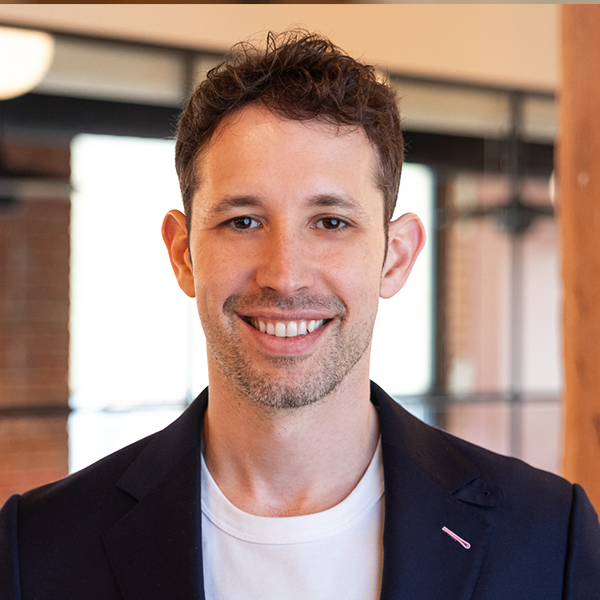People idolize Steve Jobs, Elon Musk, Jeff Bezos, and the like.
I don't.
Yes, they achieved amazing things and changed the world. But success shouldn't be one-dimensional and come at any cost. Building toxic work environments and inspiring innovation through fear shouldn't be part of success. There's another way.
I think it's time that society redefined what success means for companies, especially hypergrowth tech companies. At BenchSci, we believe in success beyond success. So we don't just look at outcomes like the impact of our product, our financials and otherwise. We also consider how we got there.
We hope that other companies will join us.
Beyond Profits and Mission
After all, corporate "success" isn't static. It used to be only about maximizing profits—financial success. Then came mission-driven companies, which focus not only on economic success but also on solving big, meaningful problems.
While this is progress, I don't think it's good enough. It doesn't say anything about how to solve these problems. Look at Uber, WeWork, Theranos, uBiome, and other companies with big ambitions but narcissistic founders, toxic workplaces, and unethical business practices (or even outright fraud).
I think that we're now in the third wave. It's not only the financial outcome that’s important; it's not only the impact on society; it's also how we achieve both. It's the company's soul and culture, how it affects people who work there, and its impact on our communities.
Our Inspiration
We’re inspired by companies that make a positive impact on all their stakeholders, not just shareholders. That includes team members, local communities, our global society, the environment, and more. Some great examples include Netflix, Airbnb, GitLab, and Patagonia.
Netflix has expressed its desire to make lasting change, not only in its company but in its industry as a whole. They encourage every employee to “look at every issue, decision, and meeting, inside and outside the company, with inclusion in mind.” They seek to increase representation by hiring more inclusively, creating access for emerging talent, and building diverse networks. They also have several Employee Resource Groups, which create spaces for employees to connect with others who’ve lived similar experiences.
Brian Cheskey, CEO and co-founder of Airbnb, called discrimination “the greatest challenge [they] face as a company.” Airbnb seeks to build an inclusive platform for all hosts and guests. They provide their hosts with tools to help them understand bias, create belonging, and work with the global community to take action against discrimination. They also support various organizations that promote open discussion and elevate diverse voices at global and local levels.
GitLab “strive[s] for a transparent environment where all globally dispersed voices are heard and welcomed.” They avoid using the term ”diversity hire”, as it can imply someone was hired for reasons other than their skill. Instead, they use the term “underrepresented” as “a way of recognizing that [they] need more of what [they] do not have so that [they] can be at [their] best.” GitLab also understands that all team members may not agree on a course of action, but everyone has a right to contribute and be heard. They state “the very nature of [their] company is to facilitate and foster inclusion.”
Patagonia has been a vocal champion of sustainable action for almost 40 years. They support the preservation and restoration of the natural environment by donating 1% of their revenue to environmental non-profits. They employ “Global Sport Activists” who use their roles in the sports community to drive social and environmental change. They also connect individuals with their grantees to take action on pressing environmental issues through “Patagonia Action Works.”
Our Actions
Inspired by these examples and ambitious to set our own, we’re building a company focused on success beyond success. Here are some of the things we’re doing to get there:
-
We're building a product that will transform drug development to improve human health. The work biomedical scientists do is life-saving, and it isn’t easy. Our mission to exponentially increase the speed and quality of their research so they can get novel medicine to patients faster gives us meaningful purpose. We’re proud of the positive impact we generate through our daily operations.
- We're supporting health, the environment, and social justice through our BenchSci Forward social responsibility platform. We believe businesses should strive to better society, both locally and globally. Through our BenchSci Forward initiatives, we fight to increase opportunities for underrepresented groups in STEM fields, eliminate the stigma around mental health, and mitigate climate change.
- We're improving diversity, equity, and inclusion through aggressive internal goals and actions to achieve them. Social injustice perpetuates a lack of equitable outcomes, resulting in disproportionate barriers to the success of underrepresented groups. We believe it’s our collective responsibility to change this. Diversity strengthens our team, and more importantly, it’s the right thing to do.
- We're investing heavily in our culture to maximize both effectiveness and the happiness and growth of our team. Our commitment to fostering a healthy and inspiring culture makes us who we are. We value transparency in all aspects of our business and encourage openness and honesty. We give team members the tools and support they need to succeed and the autonomy to maximize their impact.
What do you think about our initiatives and the companies that inspire us? Are there other companies that you think are great examples? Please share your thoughts in the comments.
